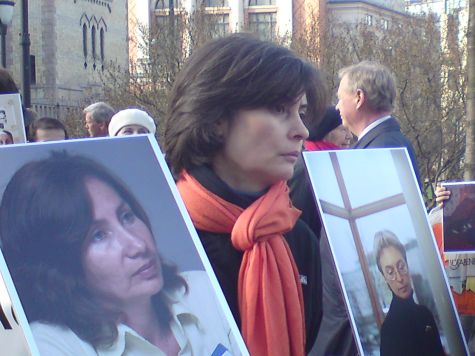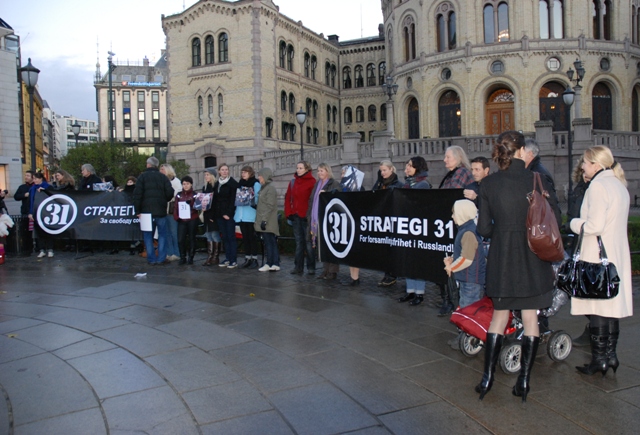 You can download the new report here.
You can download the new report here.
The countries currently part of the agreement, reminiscent of the Schengen system in Europe, are the Russian Federation, Belarus, Armenia, Kazakhstan, Kyrgyzstan and Tajikistan.
“Blacklisting” foreigners
Parallel with the development of this Joint System, many CIS countries have also increased the practice of “blacklisting” certain foreign nationals involved in human rights work and journalism.
Such decisions are usually made by the security services of the country in question, and those who are barred in this manner are neither provided with a reason for the ban, nor given any means of appeal.
With the Joint System in place, such decisions are multiplied six-fold. Usually, bans are imposed for periods as long as 5 or 10 years, and have proven difficult or impossible to remove once in place, even when requests are made through diplomatic channels and international organizations.
In addition, most CIS countries also administer national lists of journalists and representatives of non-governmental organizations who are barred from entering the country. These lists also include citizens of other CIS countries.
These practices must be seen as attempts of the states to limit contact between human rights activists at home with their colleagues abroad, as well as to limit unwanted scrutiny and investigation of potential human rights violations.
at home with their colleagues abroad, as well as to limit unwanted scrutiny and investigation of potential human rights violations.
System contradicts UN DHRD
Such actions are contrary to article 2 of the UN Declaration on Human Rights Defenders according to which states are committed to take all necessary steps to ensure that the rights of human rights defenders are effectively guaranteed.
There also exist very clear Organization’s for Security and Co-operation in Europe (OSCE) provisions committing participating States to respect and facilitate the work of human rights defenders.
For journalists and representatives of international non-governmental organizations working in the sphere of human rights and democracy this system represents a potentially dramatic curb on their ability to carry out their work.
The CIS ban system has been granted limited attention by international organizations such as the UN, the OSCE and the EU.
Individuals left alone
Even though these organizations and individual states occasionally respond to restrictive practices of banning entry of human  rights defenders and journalists, there is clearly a need for a more systematic approach to the problem. As it is today, too much depend on the efforts of the individual banned or deported to have his or her case raised.
rights defenders and journalists, there is clearly a need for a more systematic approach to the problem. As it is today, too much depend on the efforts of the individual banned or deported to have his or her case raised.
NHC claims that the EU, the US as well as the OSCE and the UN clearly need to develop effective procedures and mechanisms which can respond more forcefully to these threats against international human rights activism.
Pictures above: On 27 April 2010 Amnesty International, the Norwegian Helsinki Committee and the Human Rights House Foundation staged a silent protest in Oslo during Russia’s President Dimitri Medvedev visit to Norway.
Eight Norwegian nongovernmental human rights organisations, including Amnesty International Norway, the Norwegian Helsinki Committee and Human Rights House Foundation, showed their support to a pro-democracy civil Russian movement “Strategy 31“ by organising a demonstration in Oslo on 31 October 2010.
HRH Oslo, based on Norwegian Helsinki Committee information.
Related links:
Norwegian NGOs showed solidarity with Russian pro-democracy movement
-Human rights are also on the agenda, Mr President
Is Medvedev’s Russia moving towards democracy?
Russian human rights groups in Moscow in the searchlight of the Prosecutor’s Office
Russia: human rights defender sentenced for the second time
Russia’s North Caucasus – human rights and conflict dynamics





